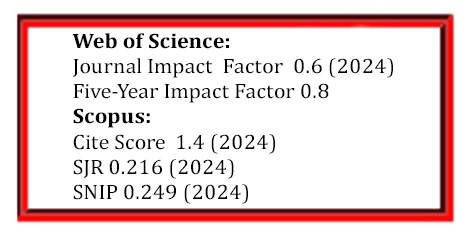Complex Influence of Plasticizing Admixtures and Sodium Silicate Solution on Rheological Properties of Portland Cement Paste
Keywords:
Portland cement, sodium silicate solution (NSS), plasticizing admixture, cement slurry, rheologyAbstract
Complex influence of sodium silicate solution (NSS) and plasticizing admixtures, comprising polycarboxylic polymers, on yield stresses, viscosity and dilantancy of the cement paste has been determined experimentaly. It was determined that the yield stresses in cement paste with superplasticizer comprising polycarboxylic ethers and sodium silicate solution reduce when NSS is added up to 0.8 % by weight of the cement, yield stresses increase abruptly when NSS content in the paste is from 0.8 % to 1 %, and remain constant when NSS content is increased up to 2.0 % by weight of the cement. Yield stresses in cement paste with superplasticizer comprising polycarboxylic polymers, modified by naphthalene formaldehyde resin, and NSS, increase gradually by raising NSS content up to 2.0 % by weight of the cement. Dilatancy of cement paste with superplasticizer comprising polycarboxylic ethers reduces when NSS is added up to 0.2 % by weight of the cement; with further increase of NSS content up to 1.2 % by weight of the cement the dilatancy remains constant and when that amount is exceeded the slurry becomes pseudoplastic. Negative dilatancy factor in slurries with superplasticizer comprising polycarboxylic polymers, modified by naphthalene formaldehyde resin, and 0.5 % NSS indicates pseudoplastic state of the paste, which shifts into the state of similar dilatant slurry without NSS. Performed tests have proven that the tested nanomodifier is a good regulator of rheology of the slurry made of Portland cement and polycarboxylic superplasticizer.
Downloads
Published
Issue
Section
License
The copyrights for articles in this journal are retained by the author(s), with first publication rights granted to the journal. By virtue of their appearance in this open-access journal, articles are free to use with proper attribution in educational and other non-commercial settings.



